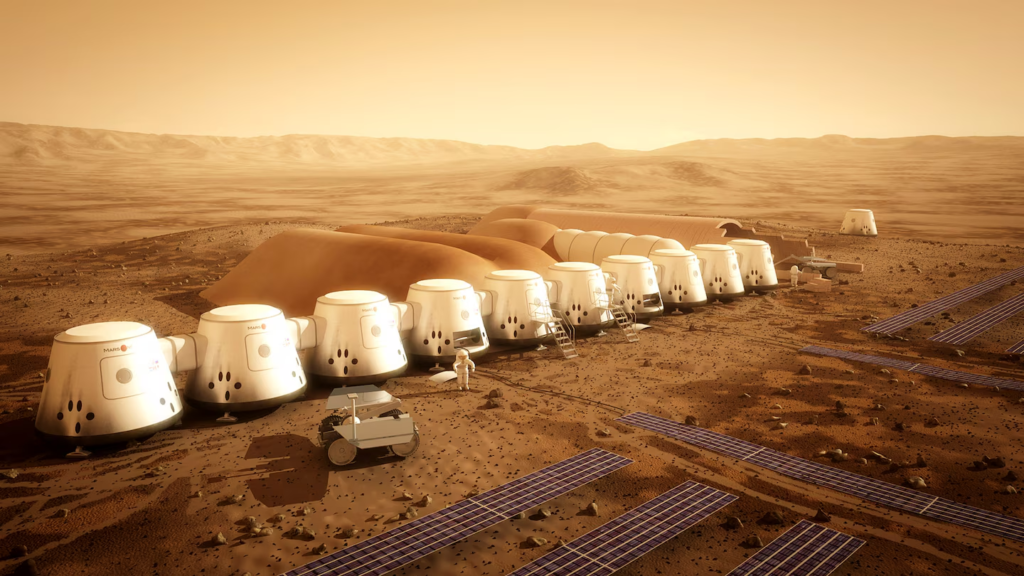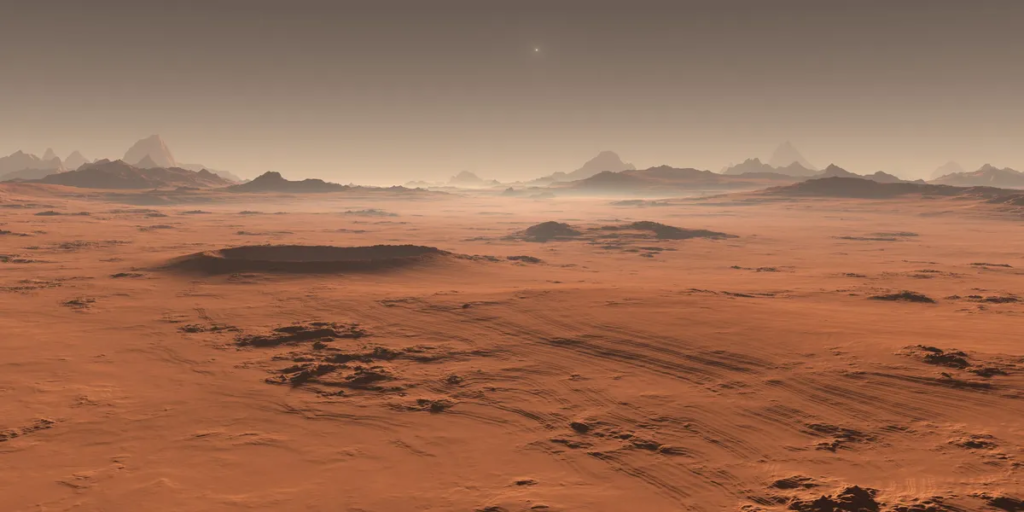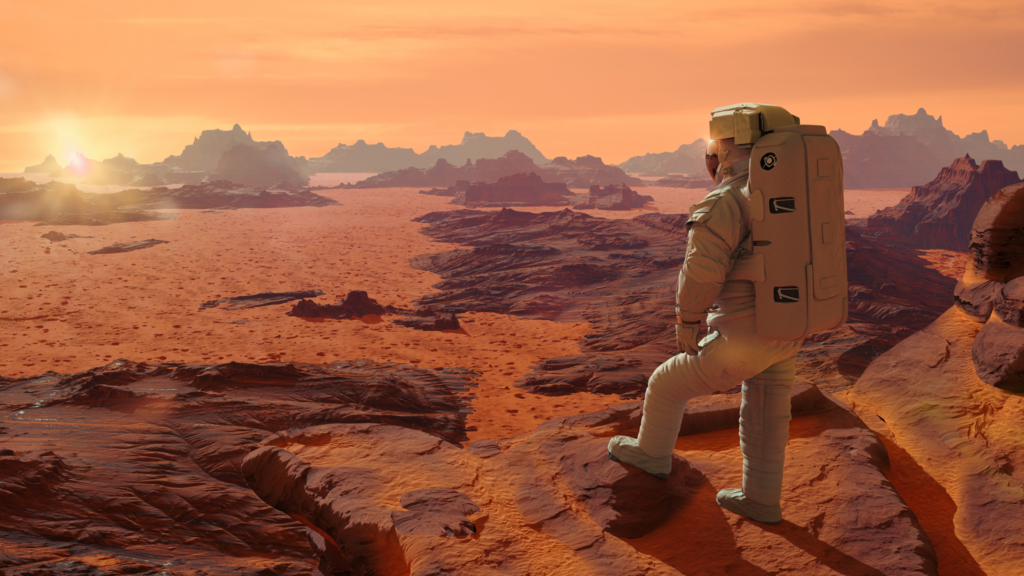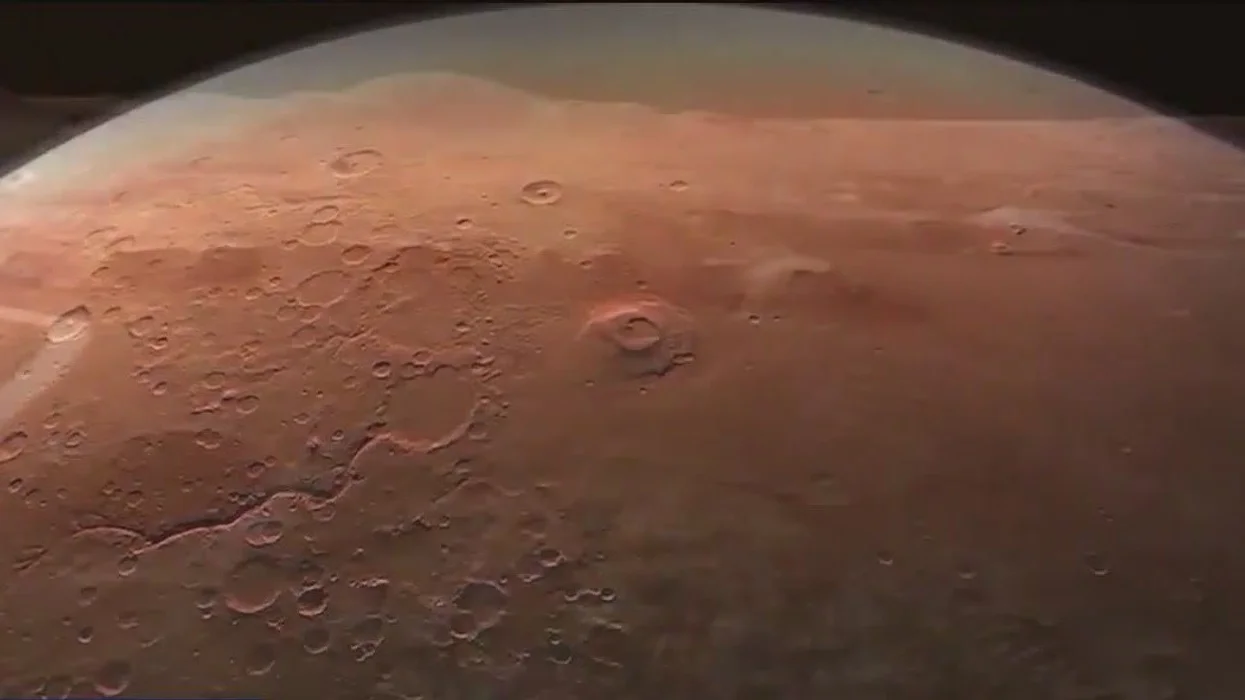Living on Mars presents a daunting set of challenges for humans, as the harsh environment of the Red Planet may lead to significant evolutionary changes. Dr. Scott Solomon, a biologist from Rice University, warns that the conditions on Mars could cause mutations in human settlers.
These changes might include developing green skin and losing eyesight, making the dream of living on Mars a formidable challenge for humanity.
The surface of Mars is vastly different from Earth, and living on Mars would require humans to adapt to these differences. The planet’s low gravity, high radiation levels, and lack of protective atmosphere are some of the primary factors that may force human evolution in new and unexpected directions.

Read : Elon Musk Announces SpaceX to Launch First Starships to Mars in Two Years
Dr. Solomon’s research suggests that children born on Mars would be especially susceptible to these changes, as their bodies would need to cope with an environment that is far from what human biology has evolved to handle.
The Impact of Mars’ Harsh Environment on Human Physiology
Mars is a smaller planet than Earth, with only about 30% of Earth’s gravity. Living on Mars would therefore have a profound impact on human physiology. Over time, humans may experience weakened muscles and brittle bones due to the low gravity.
Read : When I Asked ChatGPT Which Place Would You Choose to Live Beyond Earth: That’s the Answer
These changes are similar to what astronauts experience after extended periods in space, but on Mars, they could become permanent and more extreme. The longer humans live on Mars, the more pronounced these adaptations could become.

Another critical aspect of living on Mars is the planet’s exposure to high levels of radiation. Mars lacks a magnetic field and protective ozone layer, which means that its surface is constantly bombarded by harmful cosmic rays and solar radiation.
Prolonged exposure to this radiation could cause mutations in human DNA, potentially leading to the development of green skin as an evolutionary response to help shield the body from radiation. This drastic change, while seemingly far-fetched, is a possibility that Dr. Solomon believes could happen over generations.
The Risk of Vision Loss on Mars
Living on Mars also presents a significant risk to human vision. The high levels of radiation, combined with the lack of a breathable atmosphere, could damage the eyes over time.
Dr. Solomon suggests that humans living on Mars might gradually lose their eyesight, especially if they are exposed to radiation without adequate protection. This could become a serious issue for human settlers, as impaired vision would limit their ability to explore and function effectively on the planet.
The Martian environment, with its dusty surface and thin atmosphere, would likely make it difficult for human eyes to adjust. Without proper protection, such as advanced helmets or artificial habitats that replicate Earth-like conditions, the risk of losing eyesight becomes a real concern for future Mars settlers. Scientists are already exploring ways to mitigate these risks, but the challenges remain substantial.

Adapting to Life on Mars: The Evolutionary Journey
Living on Mars would not only require humans to adapt to new physical challenges but also lead to broader evolutionary changes. Dr. Solomon emphasizes that the process of evolution on Mars could occur much faster than it does on Earth due to the extreme conditions.
Humans might evolve in ways that help them survive the planet’s low gravity and high radiation. Over time, we could see the development of new physiological traits that are better suited to life on Mars.
While living on Mars might sound like the next step in space exploration, it’s clear that humanity will face numerous obstacles before colonizing the Red Planet.
The potential for mutations, including green skin and vision loss, underscores the need for careful consideration and preparation. Despite these risks, the dream of living on Mars remains alive, and scientists like Dr. Solomon are working to understand the full scope of the challenges that lie ahead.
let’s enjoy few years on earth with peace and happiness….✍🏼🙏

